
Rest and sleep
show that a chronic and constant lack of sleep has even more serious effects on your body. It has been linked to obesity, increased risk for colon cancer, breast cancer, heart disease, and diabetes. More recent research has shown that a chronic lack of sleep may also have negative effects on the brain many years later, increasing the risk for Alzheimer’s disease. It appears that sleep disruption affects crucial hormones and proteins that have a role to play in these diseases (References).
- Do you have trouble sleeping on a regular basis? Do you have trouble falling asleep, do you awaken at night or too early in the morning, or do you simply feel too tired when you get up in the morning?
- Do you feel moody or irritable during the day?
- Do you have difficulty staying awake when sitting at your desk, reading, watching television, or driving your car?
- Do you need your coffee or other “booster drinks” to keep you going during the day?
- Do you have difficulty concentrating or remembering things?
- Are you often told by your friends or colleagues that you look tired?
What can you do?
Many common sleep problems can be addressed through lifestyle changes, better sleep hygiene, and an improved sleep environment. You may also need to consult your doctor or a sleep specialist if your sleep does not improve.
As an indication, the following chart will help you determine your needs according to your age. It is important to remember, however, that this table is provided only as an indication; everybody will have their own optimal needs in terms of sleep time.
Ages 3 to 6: between 10 and 12 hours
From 6 months to 3 years: between 10 and 14 hours per day (1).
About 16 hours per day
Amount of sleep needed
Adults
Teenagers
Children
Babies and
toddlers
Infants
Group
Average Sleep Needs
Ages 9 to 12: about 9 hours
Ages 6 to 9: about 10 hours
For most adults, 7 to 9 hours a night appears to be the best
amount of sleep (3) (4) (5).
About 9 hours of sleep per night (2).
(1) Infants and young children: their required amount of sleep is generally reached through a combination of night-time sleep and day-time naps.
(2)Teenagers have trouble getting enough sleep for two main reasons:
- They have busy schedules
- Their hormones and biological clock are adjusting and generally lead to them wanting to stay up later and sleep in late in the morning. This interferes with school and sport schedules, which in tern, often results in a lack of sleep.
(3) One may not necessarily need 8 hours of sleep every night. Every person has a different optimal amount of sleep.
(4) Older adults: with ageing, sleep becomes lighter and shorter; day-time naps may be required for older adults to reach their required amount of sleep.
(5) Pregnant women: Sleep pattern is modified during pregnancy, especially during the third semester where the quantity and quality of sleep may be reduced. Pregnant women should discuss with their doctor or midwife if they experience sleep problems.
Important advice: Here are some very helpful tips for a better sleep; however, they are not intended to provide diagnosis, medical advice, or replace a proper medical evaluation. If your sleep problems persist, if you are experiencing significant or chronic sleeping problems, or if you think you suffer from insomnia or depression, please consult your health care provider. Many medical conditions have been linked to sleep disorders and insomnia; these can only be properly investigated and treated by a qualified health practitioner.
Please also read our "Health Disclaimers".
Regular physical activity may help you experience a better and deeper sleep. However, you should avoid strenuous exercise before going to bed.
Daytime napping may interfere with your night-time sleep. If you are taking naps during the day, try to eliminate them and see if this improves your night-time sleep.
- A light bedtime snack (food rich in tryptophan appears to have a beneficial effect) or a glass of warm milk (see above). Heavy food, especially fatty, sugary, rich, or spicy food, should, however, be avoided.
- A nice warm bath.
- Light reading or relaxing music.
- Meditation and visualization.
- Television should be avoided at bedtime. A study published in "Pediatrics" showed that watching television as little as two hours a day caused significant sleep problems in school-aged children. In fact, television at bedtime, especially when in the child’s room, was the most powerful predictor of overall sleep disturbance and bedtime resistance.
The following are often used for better sleep: benzoin, chamomile, lavender, jasmine, rose. Research has not conclusively shown aromatherapy to be effective in inducing sleep; however, a scent that you find pleasant can have real relaxing and soothing effects and can become an important cue for sleep in your bedtime routine.
There are a variety of techniques, and you can experiment and find the one that suits you the best.
Canada. It is important to know that some herbal supplements or extracts can have side effects. Check with your healthcare professional if you are trying these, as they may also interfere with some prescribed medications. St. John’s Wort, for example, can limit the effectiveness of many prescribed medications such as anticoagulants, birth control pills, or some anticancer drugs.
Melatonin is a natural hormone normally secreted by the brain that has a role in the regulation of sleep. Melatonin supplements have, therefore, been suggested to help with jet lag symptoms and sleep problems. It may also have some preventive effects in some cancers. Research has, however, not been totally conclusive, and the effects of long-term use of melatonin supplements are unknown. In this regard, bright light therapy may have a better effect in regulating the release of
It can be used for people having winter blues accompanied by sleep problems. Winter blues are thought to be caused by the short daylight time experienced in winter. Bright light therapy helps increase exposure to light, which has a positive effect on the brain and on the release of some hormones such as melatonin (see above). Bright light therapy may also be used for sleep problems associated with jet lag or shift work.
Cognitive behavioral therapy has been found to have beneficial effects in the treatment of sleep problems and in reducing benzodiazepine usage in the treatment of insomnia. In brief, CBT is a type of psychotherapy consisting of:
- Identifying negative thoughts, beliefs, and behaviours.
- Changing those that may be creating and maintaining symptoms.
CBT can, therefore, help change established negative sleep patterns and replace them with more positive sleep behaviours.
On a short-term basis, sleep deprivation leads to difficulty in waking up in the morning; poor performance in school, on the job, or in sports; clumsiness and increased risk of accidents; difficulty making decisions; falling asleep during work or class; poor memory; and feeling especially moody or irritated.
In the long run, scientific studies
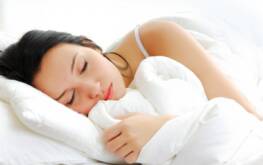
What is the importance of a good sleep?
What can a lack of sleep do to me?

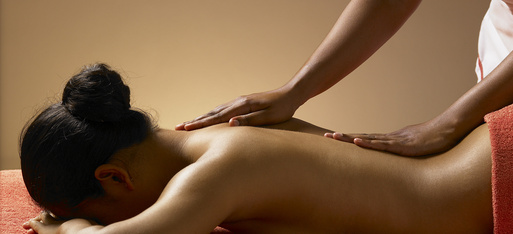
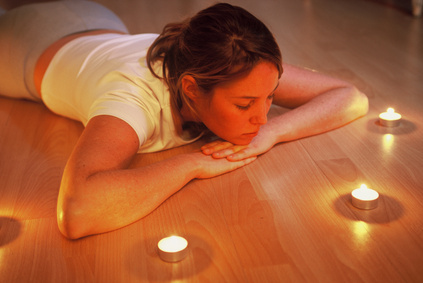
Massage physical and psychological benefits have been recognized since ancient times.
There are many different types and styles. Find the type that you prefer.
Several herbal remedies are thought to help sleep. Examples include chamomile, valerian root, kava kava, chamomile, lemon balm, passionflower, lavender, and St. John’s Wort. These “medicinal plants” have not yet been scientifically proven to work, although many use them.
Note that the effectiveness of herbal supplements has not been evaluated by the US Food and Drug Administration or by Health

Note: If your sleep problem persists or if you are unsure about its cause, nature, or severity, or if you experience excessive day time sleepiness, you should consult your health care professional who remains the best person to help you. Depending on your particular and specific medical situation, your physician may propose sleep medication on a short-term basis. In some instances, sleep problems may be the symptoms of a more serious underlying medical condition, such as insomnia, sleep apnea, snoring, narcolepsy, or a psychological condition such as anxiety or depression. If your physician suspects a more serious underlying cause, he or she may also refer you to a sleep center for further investigation.
I want to learn more:
Recommended readings and resources
Books
- Manual of Acupuncture, by Peter Deadman and Mazin Al-Khafaji
- The End of Stress as We Know It by McEwen, Bruce and Elizabeth Norton Lasley.
- Herbal Antibiotics: Natural Alternatives for Treating Drug-Resistant Bacteria by Stephen Harrod Buhner
- Overcoming Insomnia A Cognitive-Behavioral Therapy Approach Workbook by Jack D. Edinger
- Cognitive Behavioural Therapy for Dummies by Rhena Branch and Rob Willson
For the scientist in you: See what recent research demonstrates:
- Scientific articles:
 Lack of sleep and chronic diseases
Lack of sleep and chronic diseases
Acupuncture has been used for the treatment of insomnia since ancient times and is particularly effective. Many people do report positive effects and improvements in their sleep pattern with acupuncture. Acupuncture has also been shown to increase nocturnal melatonin and to reduce insomnia and stress (Reference).
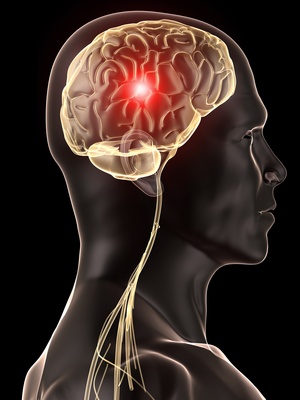
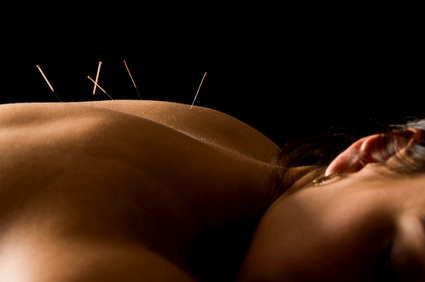

natural melatonin by the brain and may therefore be more efficient and have much fewer side effects. More on melatonin.
- Cognitive Behavioural Therapy (CBT)
- Bright Light Therapy
- Herbal Supplements
- Melatonin
- Massage
- Relaxation techniques and meditation
- Aromatherapy
- Your environment
- Use a good mattress as well as comfortable sheets and blankets.
- Adjust your room temperature to a comfortable level.
- Have proper ventilation. You may like to open a window, or, may also want to close it if it is too cold.
- Try to control the degree of humidity in your room. It may be too dry, and you may need to use a humidifier, especially in winter when you heat your house; conversely, it may be too humid at times and a de-humidifier may then become useful.
- Avoid noise and light as much as you can.
- Use your bed (or the entire bedroom if possible) only for sleeping (and sex): when you go to bed, it will trigger a conditioned message that it is time to sleep; if you use your bed as an office, for recreation, or for other activities, your body and mind may not get that important cue.
- Other approaches that are often successfully used:
- Acupuncture
- Bedtime routine
- Naps
- Physical Activity
- Food and drink
- Avoid caffeine or alcohol 4 to 6 hours before going to bed.
- Avoid heavy food before bedtime, especially fatty, sugary, rich, or spicy food.
- A glass of warm milk and food containing tryptophan, such as banana or turkey breast, can be very helpful. Click here for a list of foods rich in tryptophan.
- Medication
- Many medications may prevent you from sleeping well. Discuss with your physician or pharmacist whether you want to know if the medication you are taking can affect your sleep.
- Sleep medication, which can be either prescribed or found over the counter, is normally not recommended for long-term use. If you consider taking sleep medication, including over-the-counter products, you should carefully discuss this choice with your health care professional.
Developing good sleeping habits
Many common sleep problems can be addressed through lifestyle changes, better sleep hygiene, and improved sleep environment.
Tips for a better sleep
Notes: